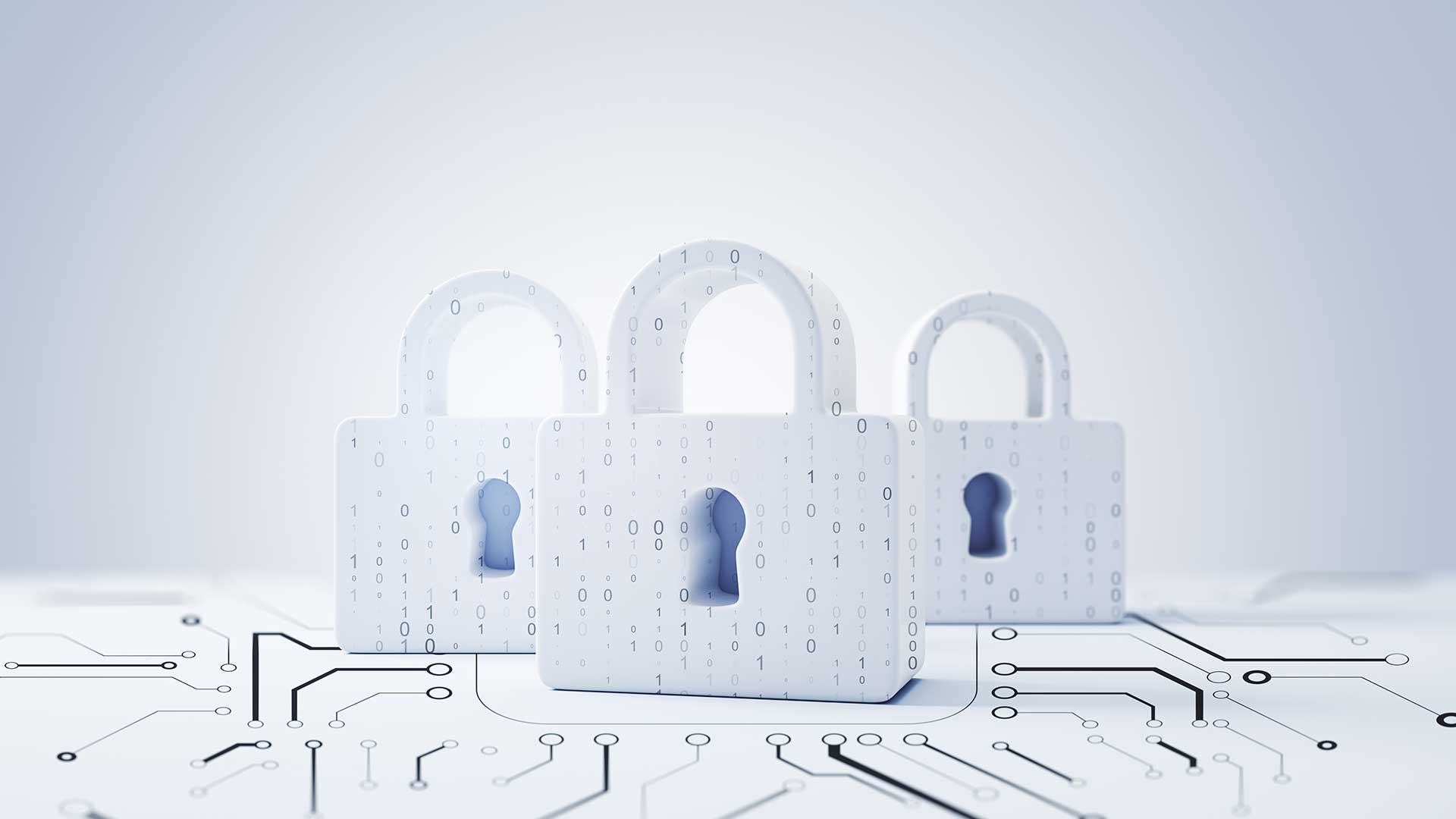
Thank you
Our team of industry domain experts combined with our guaranteed SLAs, our world class technology .


Get Immediate Help
In today's digital landscape, where data reigns supreme, safeguarding its confidentiality stands as a linchpin in the realm of cybersecurity. Data confidentiality ensures that sensitive information is accessible only to authorised individuals and systems, shielding it from unauthorised exposure, access, or tampering. Let's delve into why this is paramount and how organisations can navigate this crucial aspect of cybersecurity.

Data confidentiality refers to the practice of safeguarding information from unauthorised access, disclosure, or alteration. In essence, it ensures that only those with the appropriate permissions can access sensitive data, shielding it from prying eyes and potential misuse.
At its core, data confidentiality protects the integrity and privacy of information, guarding against unauthorised disclosure that could lead to severe consequences. This includes breaches of personal privacy, exposure of sensitive business strategies, and potential legal ramifications. Imagine a scenario where financial records, healthcare information, or proprietary business plans fall into the wrong hands – the fallout could be catastrophic.
In the next sections, we'll delve into why data confidentiality is crucial for individuals and organisations, exploring the myriad ways it contributes to privacy, security, and the overall trustworthiness of digital ecosystems.

1. Protecting Privacy and Reputation:
- Data breaches laying bare personal information, such as financial details or healthcare records, can wreak havoc on individuals and organisations. The loss of confidentiality not only erodes trust and damages reputations but can also lead to severe legal consequences.
2. Minimising Attack Surfaces:
- Limiting access to sensitive data is akin to fortifying an organisation's defences. By reducing the attack surface, it becomes more challenging for malicious actors to exploit vulnerabilities and pilfer valuable information. Restricted data access mitigates the risks of insider threats and accidental data leakage.
3. Enabling Secure Operations:
- Confidential data is the lifeblood of crucial business operations and decision-making. Breaches can disrupt processes, compromise strategic plans, and provide competitors with an unfair advantage. Preserving data confidentiality ensures data integrity, enabling secure and well-informed business practices.
4. Compliance with Regulations:
- The digital landscape is governed by various regulations, such as GDPR and HIPAA, which mandate robust data privacy and security measures. Upholding data confidentiality showcases compliance with these regulations, averting hefty fines and legal disputes.
5. Building Trust and Confidence:
- Organisations that prioritise and demonstrate a strong commitment to data confidentiality cultivate trust with customers, partners, and employees. This trust translates into loyalty, positive brand perception, and a competitive edge in a world increasingly driven by data.
.png)
1. Access Control:
- Implement robust access control mechanisms, including multi-factor authentication and role-based access control, to restrict data access to authorised individuals and systems.
2. Data Encryption:
- Safeguard data at rest and in transit by employing encryption. Even if attackers gain access to systems, encryption prevents unauthorised interception and decryption.
3. Data Leakage Prevention:
- Utilise Data Leakage Prevention (DLP) tools to scan for sensitive data and prevent its unauthorised transfer outside the organisation, thereby minimising accidental or intentional data breaches.
4. Security Awareness Training:
- Educate employees on data security best practices, how to identify phishing attempts and the importance of reporting suspicious activity. A well-informed workforce strengthens the human firewall against potential breaches.
5. Incident Response Planning:
- Have a well-defined incident response plan in place to ensure swift and effective action in the event of data breaches. A prompt response minimises damage and aids in restoring normal operations.

At Microminder CS, we understand the critical importance of data confidentiality in today's cybersecurity landscape. Our comprehensive suite of services, including access control solutions, data encryption measures, and state-of-the-art DLP tools, is designed to fortify your organisation's defences. We specialise in security awareness training and incident response planning, ensuring that your team is well-prepared to tackle potential threats. Here's how our services can specifically address the challenges associated with maintaining data confidentiality:
1. Access Control Solutions:
- Our access control solutions provide robust mechanisms, including multi-factor authentication and role-based access control. By implementing these measures, organisations can restrict data access to authorised individuals and systems, minimising the risk of unauthorised exposure.
2. Data Encryption Measures:
- Microminder CS specialises in implementing advanced data encryption measures. By safeguarding data at rest and in transit, we ensure that even if attackers gain access to systems, the encrypted data remains secure, preventing unauthorised interception and decryption.
3. Data Leakage Prevention (DLP) Tools:
- Our suite of services includes cutting-edge Data Leakage Prevention tools. These tools actively scan for sensitive data and prevent its unauthorised transfer outside the organisation. This proactive approach minimises the risk of accidental or intentional data breaches.
4. Security Awareness Training:
- Microminder CS offers comprehensive security awareness training programs. Educating employees on data security best practices, identifying phishing attempts, and understanding the importance of reporting suspicious activity ensures a well-informed workforce, strengthening the human firewall against potential breaches.
5. Incident Response Planning:
- Our expertise extends to incident response planning. Having a well-defined incident response plan in place ensures that organisations can respond swiftly and effectively in the event of data breaches. This proactive approach minimises damage and aids in restoring normal operations.
Data confidentiality is not merely a technical challenge; it is a cultural imperative. Organisations must instil a culture of data privacy and security where everyone understands the significance of protecting sensitive information. By prioritising data confidentiality, organisations can construct a more secure, resilient, and trustworthy digital presence.
Microminder CS is your trusted partner in navigating the complexities of data confidentiality. Our tailored solutions, coupled with a commitment to staying at the forefront of cybersecurity advancements, empower organisations to build a secure, resilient, and trustworthy digital presence.
Choose Microminder CS – Your Ally in Safeguarding Data Confidentiality.
Don’t Let Cyber Attacks Ruin Your Business
Call
UK: +44 (0)20 3336 7200
KSA: +966 1351 81844
UAE: +971 454 01252
Contents
To keep up with innovation in IT & OT security, subscribe to our newsletter
Recent Posts
Penetration Testing | 10/11/2025
Cloud Security | 07/11/2025
Cybersecurity | 06/11/2025
What is data confidentiality, and why is it important for organisations?
Data confidentiality refers to the protection of sensitive information from unauthorised access, disclosure, or modification. It is crucial for organisations as it helps maintain trust, protects privacy, and ensures compliance with regulations. Breaches in data confidentiality can lead to reputational damage, legal consequences, and financial losses.How can organisations ensure data confidentiality in a remote work environment?
To ensure data confidentiality in a remote work setup, organisations should implement secure communication channels, enforce strong access controls, use virtual private networks (VPNs), conduct regular security training for remote employees, and employ endpoint protection measures.What role does encryption play in maintaining data confidentiality?
Encryption is a fundamental component of data confidentiality. It involves converting data into a coded form that can only be deciphered by authorised parties with the appropriate decryption key. This ensures that even if unauthorised individuals access the data, they cannot interpret it without the key.How can organisations prevent data leakage and unauthorised transfers?
Organisations can prevent data leakage by implementing Data Leakage Prevention (DLP) tools. These tools monitor, detect, and prevent unauthorised transfers of sensitive data. Additionally, educating employees on security best practices and implementing access controls are essential measures.What are the regulatory implications of data confidentiality breaches?
Data confidentiality breaches may lead to severe regulatory consequences. Organisations may face fines, legal actions, and damage to their reputation. Compliance with regulations such as GDPR, HIPAA, or others is essential to avoid these implications.